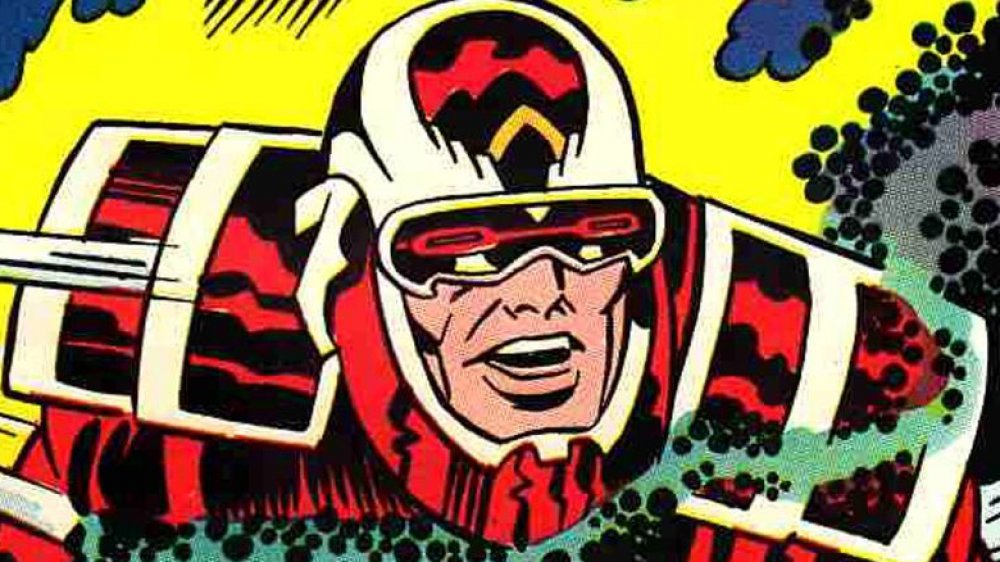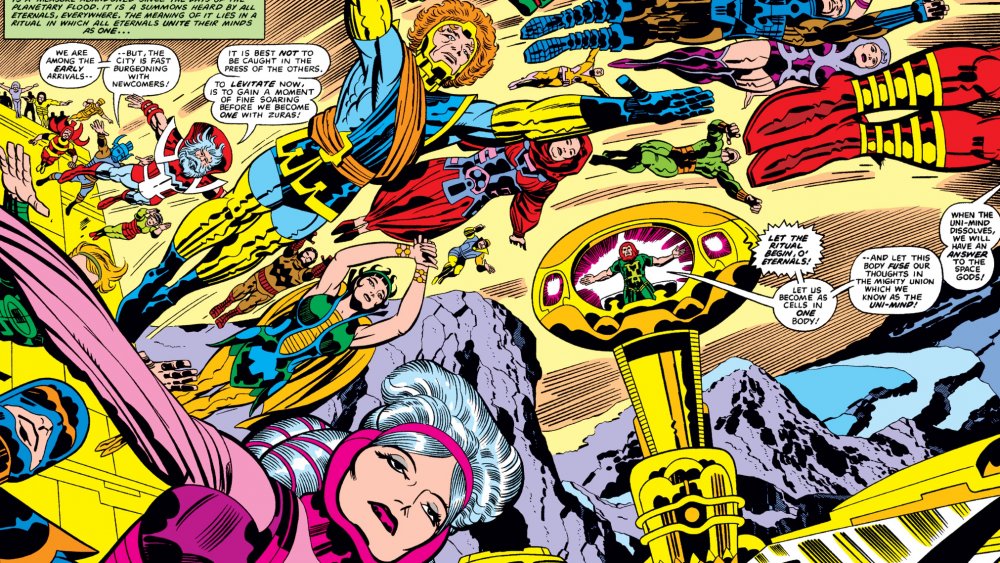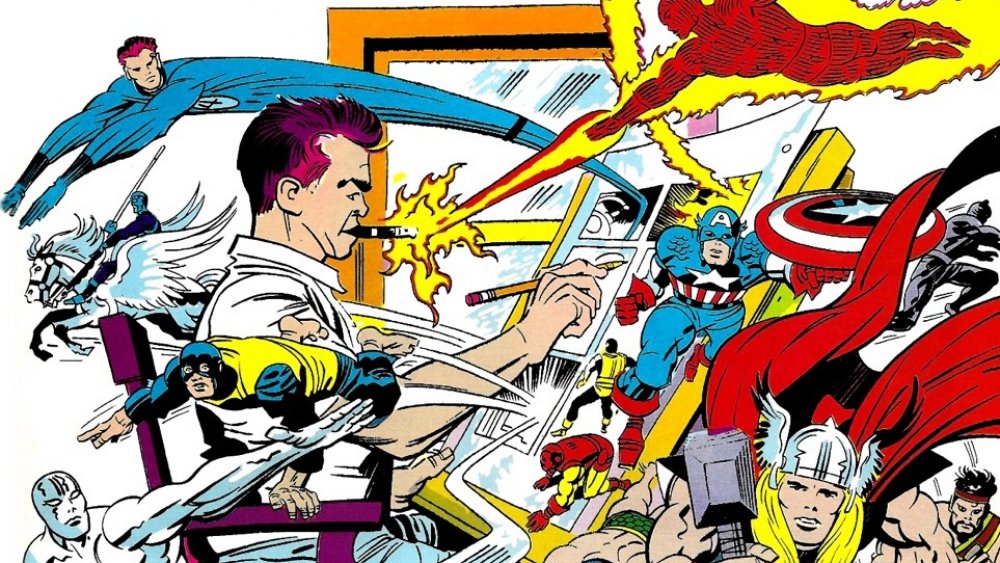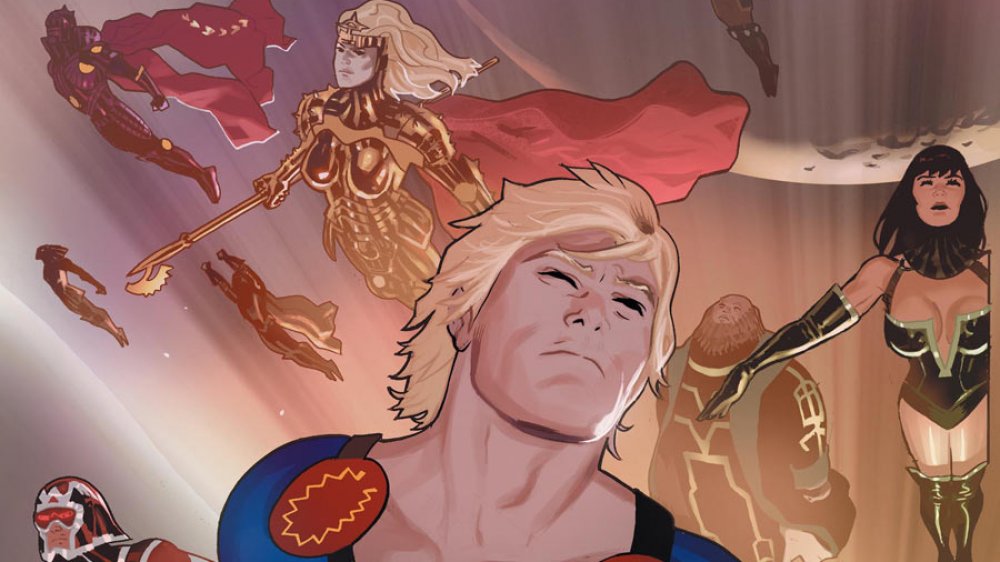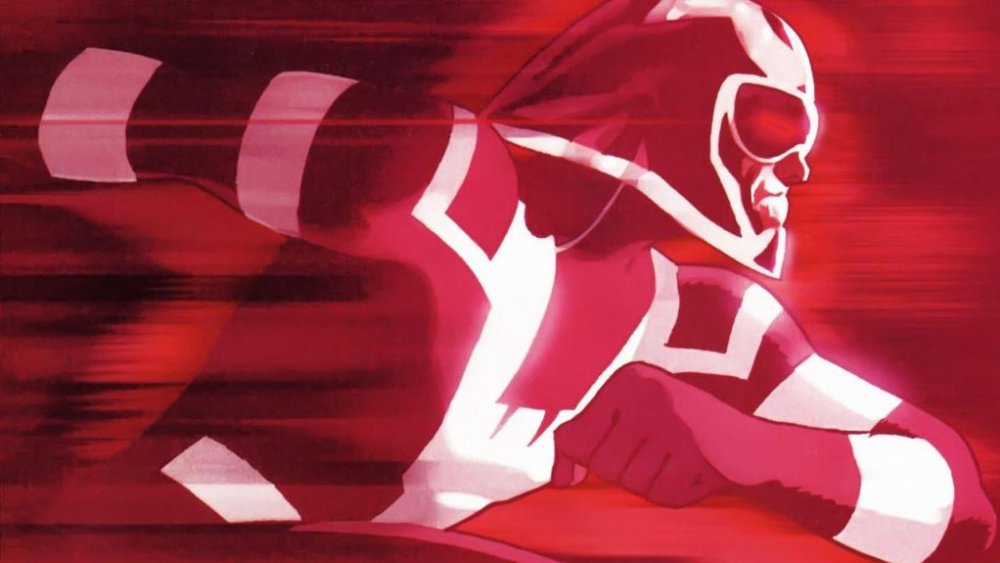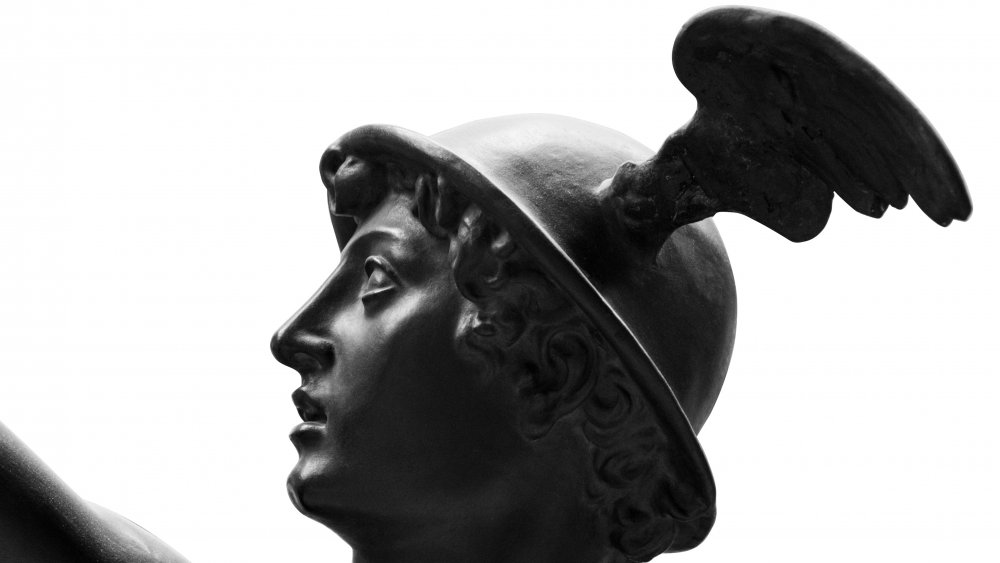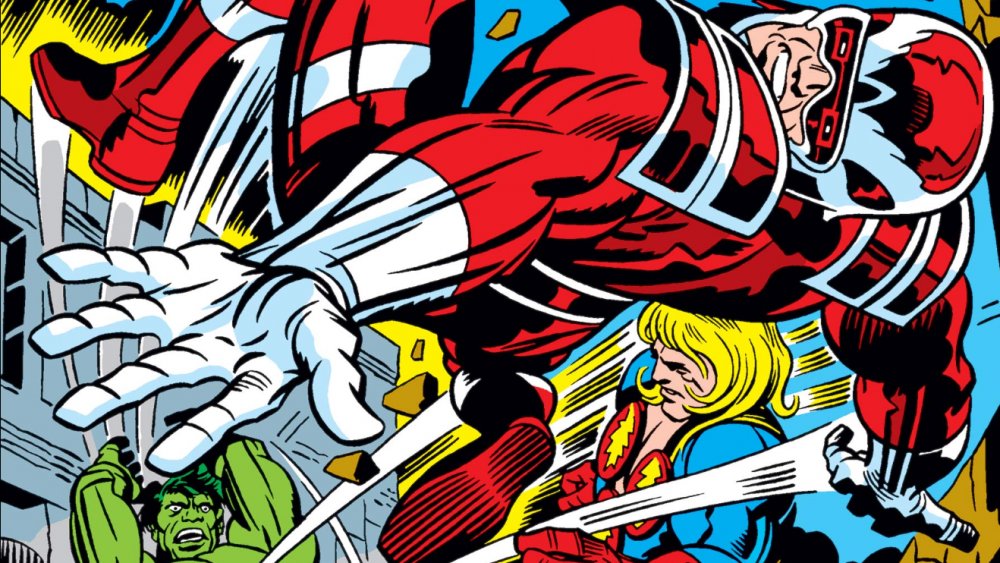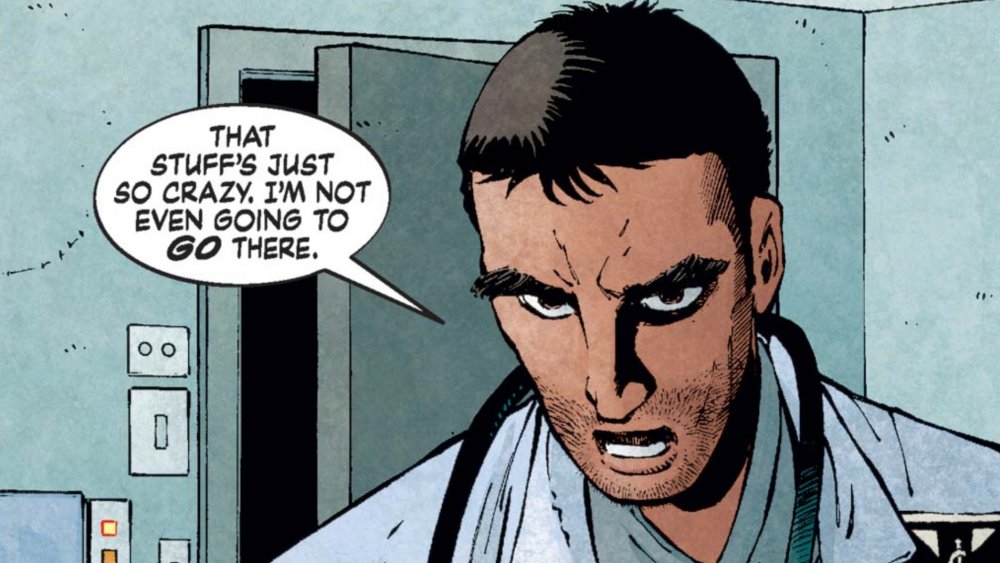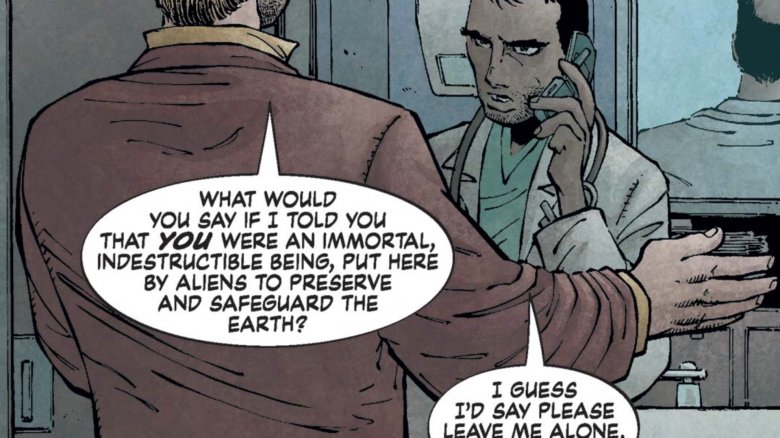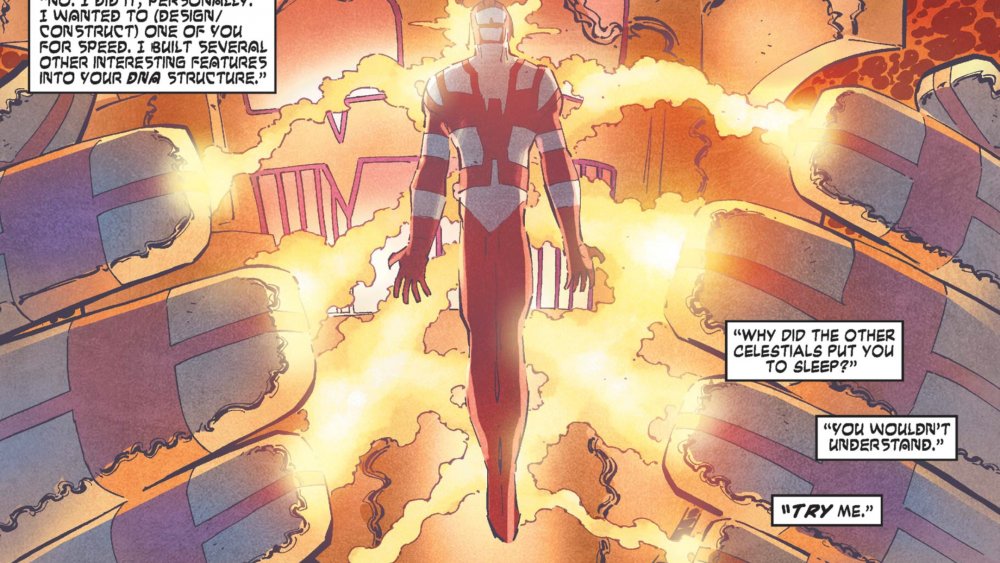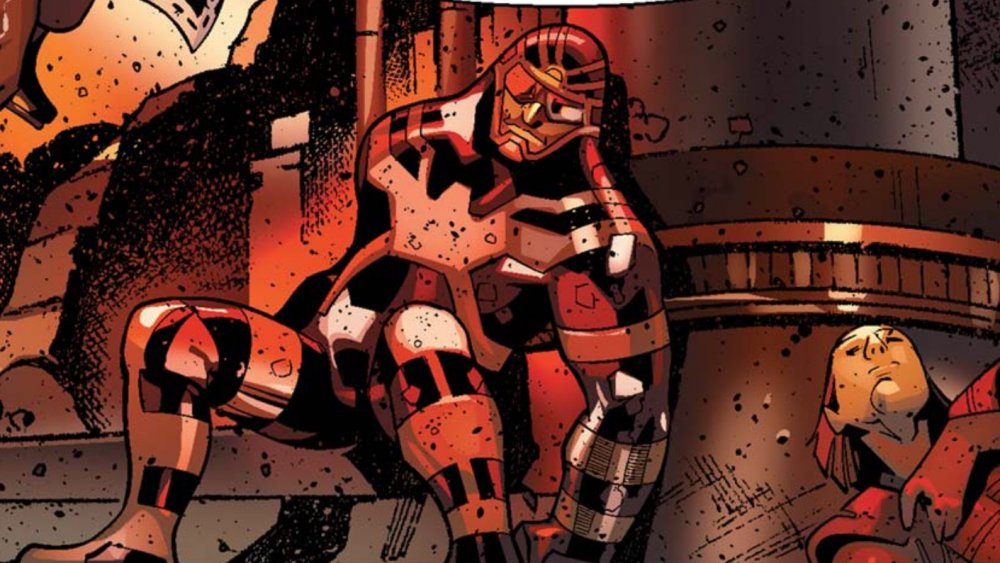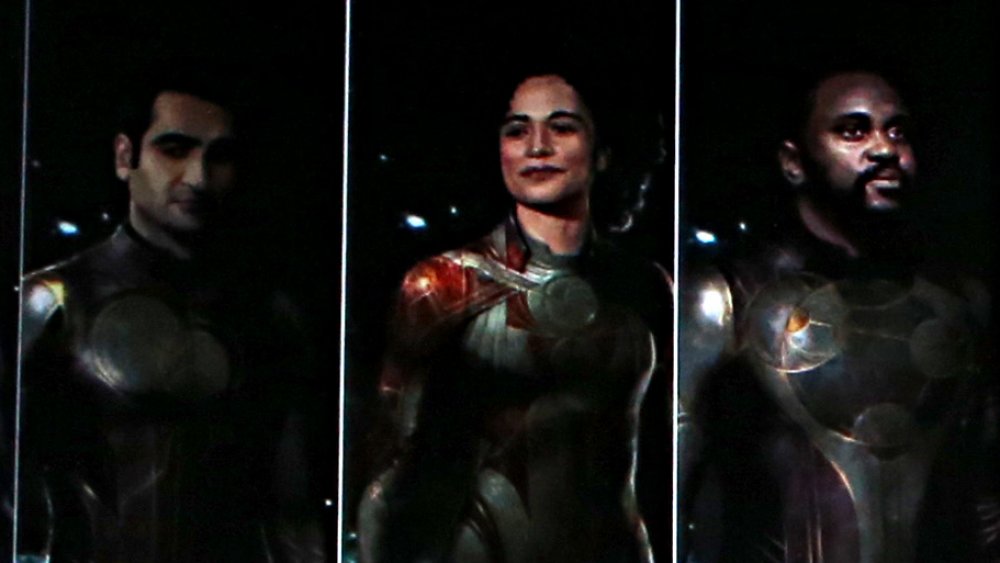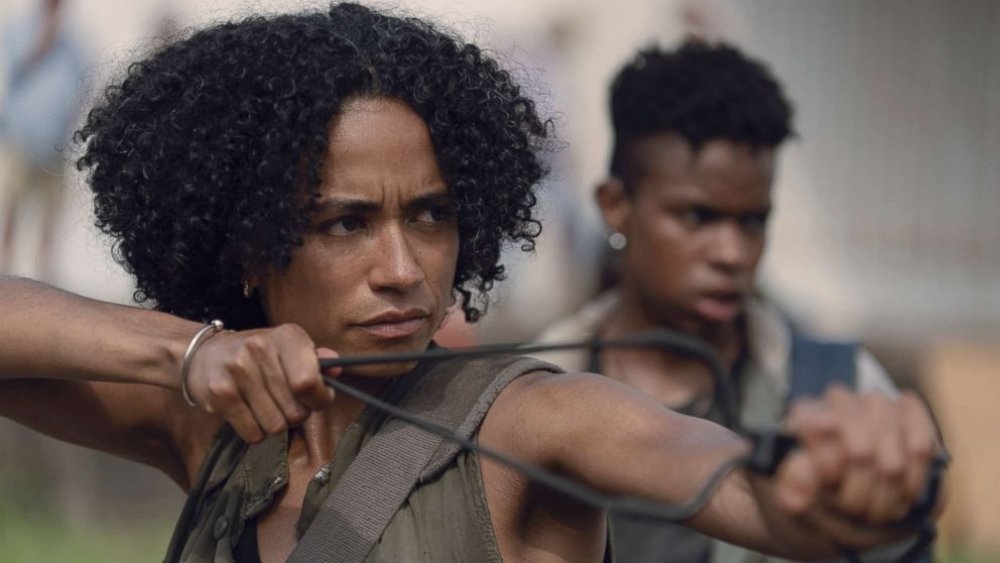Everything You Need To Know About Marvel's Makkari
We may receive a commission on purchases made from links.
Marvel Studios and director Chloe Zhao's The Eternals, due in theaters on February 21, 2021, promises a cosmic MCU adventure full of immortal warriors and gods from space, with a marquee-friendly cast that includes everyone from Angelina Jolie to Spider-Man: Into the Spider-Verse's Bryan Tyree Henry and The Big Sick's Kumail Nanjiani. Starring alongside that impressive group is Walking Dead star Lauren Ridloff as the superfast tech wizard Makkari. We may have to wait to see how she interprets the character, but this Eternal already has a very long and colorful history in the comics — one that stretches back over 40 years and has been told through stories by masters of the medium like Neil Gaiman, bestselling author and creator of The Sandman, and Jack Kirby, creator of The Incredible Hulk and more comics classics than we can name.
Unless you number yourself among Marvel's generations of true believers, chances are good that you aren't completely brushed up on the Eternals in general — or this character in particular. Who is Makkari, anyway? What has he done since making his debut in the comics? And what can he do? Here's everything you need to know.
Everything you need to know about the Eternals
As the text that introduced every issue of the original comic puts it, "Strange events have exposed a startling fact, kept alive through the centuries only by myth and superstition — man is not alone on the evolutionary chain! He has shared the planet with two species unknown to him! Now, in a sudden burst of violence, the Deviants have risen from their domain beneath the sea to challenge all humanity! But mankind has unexpected allies — the Eternals!"
The Eternals were the result of experiments on prehistoric hominids by godlike cosmic beings called the First Host of the Celestials — experiments that created the human race as well as the monstrous Deviants. The Celestials made the Eternals immortal, and for a million years, they watched and guided humanity's progress, until the return of the Celestials brought the Eternals out of the shadows to save humanity from the Celestials' wrath — and from the Deviants, who wanted to enslave humanity the way they had in prehistoric times.
Makkari is a Kirby creation
All this happened in a 1976–1978 comic series by master writer/artist Jack Kirby, who created half (if not more) of what we now call the Marvel Universe, from the first Captain America stories in the World War II era through his collaborations with Stan Lee in the '60s. Unfortunately, the relationship between these two creative titans turned sour by the end of the decade, with Kirby feeling Lee was taking a disproportionate amount of the money and credit for their creations. So Kirby jumped ship to DC, where he created a whole new mythology with The New Gods and its spinoffs, introducing the DC Universe's biggest villain, Darkseid, and setting up all kinds of other wild new ideas like the post-apocalyptic Kamandi: The Last Boy on Earth and the horror hero The Demon. But DC proved even more frustrating than Marvel, as the editors canceled series left and right to shuffle Kirby onto new projects. "It was like escaping a slave ship for the Titanic," he said, and went back to Marvel.
All these frustrations hadn't dulled his imagination, though, and Kirby continued to churn out masterpieces at Marvel, returning to his creations like Captain America and Black Panther while dreaming up new series like Devil Dinosaur and The Eternals. The Eternals was a chance for Kirby to combine the trendy theories of ancient astronauts with the cosmic mythologizing of The New Gods. There are plenty of parallels — even Makkari's name sounds suspiciously like New Gods' evil clown doctor Mokkari.
Makkari's got Eternal powers
As a result of the Celestials' experiments, Makkari and all the other Eternals have powers that would put any of Earth's mightiest heroes to shame. Besides their immortality, they also have total control over the atomic structures of themselves and everything around them, and they can blast the cosmic energy they call "the Bolts of Zuras" from their eyes and hands. They can also fly (or, as Kirby says, "levitate") by manipulating gravitons, the subatomic particles that enforce the law of gravity. But if they need to get someplace in a hurry, they can simply teleport there. The Eternals can also communicate with the Celestials by merging their consciousnesses into an enormous "Uni-Mind." And like any good comic book characters, they've also got super strength, able to lift up to 30 tons. Eternals also have psychic powers, but Makkari would rather control machines than minds. As a result, he's one of his family's best inventors — as fellow Eternal Sersi puts it, "His mania for fast vehicles has made that name notorious!"
Makkari's got Eternal speed
While Makkari has the same powers as the rest of his species, he can't use them at the same level as the others because he's channeled all his energy to testing the limits of his speed. As a result, he became so fast that he can run across water and his body produces faster-than-light particles as he does.
In the '90s comic series Quasar by Mark Gruenwald and Mike Manley, he got a chance to prove just how fast he was when he got a call from the Runner — one of the Elders of the Universe, immortal beings who had survived the deaths of their species and decided to fill eternity by devoting themselves to perfecting a single skill. He challenged Makkari to race from Earth to the moon against the Marvel Universe's fastest heroes and villains. Makkari almost won, until a stranger from another universe materialized on the racecourse and outran him. He arrived with no memories except that he had to run fast enough to save another universe and that his name sounded something like "Buried Alien," but he knew something felt right about being declared "the Fastest Man Alive."
Makkari got the last laugh, though. After spending some time training on a planet where everyone had devoted their lives to racing, Makkari got a chance for a rematch, and actually beat the Runner himself.
Makkari's got Eternal history
Like the rest of the Eternals, Makkari's adventures in the human world inspired some of history's most durable legends. The Romans knew him as the god Mercury (which Makkari blames on "the speech impediments of humans"). The Eternals revival by Neil Gaiman and John Romita Jr. revealed that he taught writing to the Egyptians, who called him Thoth, and that he had also been present in Rome when it burned.
And he's been written into the fictional history of the Marvel Universe too. More recent writers have revealed that the heroes of some of Marvel's World War II-era comics were actually more of Makkari's alternate identities. Marvel Universe revealed he was the super-fast Hurricane, who, ironically, claimed to be the son of Thor decades before the definitive Marvel version of the legendary thunder god first appeared. And according to the Marvel Mystery Handbook, he also fought crime, naturally enough, as Mercury. The villains he fought turned out to have Eternals connections too, as both the gangster Paul Sayden and the death god Pluto were aliases for Kro, the Deviant warlord.
He was also written into a pre-Marvel Universe horror story by his future creator, Jack Kirby. This fit with his adventures in the pages of Marvel Universe, where Roger Stern and Mike Manley wrote about how he spent the '50s fighting monsters with a team that included fellow immortal Ulysses Bloodstone and a warrior from the Black Panther's kingdom of Wakanda.
Makkari got smashed by the Hulk
While these other stories may take place earlier, Makkari's real first appearance had to wait until 1976. "Olympia!" introduces the title city when Sersi calls for help against a Deviant invasion in New York. Using a mirror-shaped communicator, she gets in touch with Makkari, efficiently summing up his personality: "Mirror, mirror, on the wall — who's the oldest juvenile of them all?" And she's right — as Makkari rushes off to warn their leader Zuras of the danger, the other Olympians all assume he's just zipping around for no reason like he always does. Fortunately, he's able to convince the warrior woman Thena to help him defend New York.
He had many more adventures in the pages of The Eternals, including a bout with the Incredible Hulk — sort of. Kirby says his editors pushed him to tie the book into the wider Marvel Universe to boost sales, but he was reluctant, probably because he realized a story about immortal heroes who inspired the gods of mythology didn't really work in a world where those gods actually existed. So he found a workaround, pitting the Eternals against a robotic Hulk some college students had built as a football mascot and was brought to life by a bolt of cosmic energy from the Eternals' Uni-Mind ritual. All that energy made this "Pseudo-Hulk" even stronger than the real deal, and it made short work of Makkari before Zuras drained its cosmic power.
Makkari lived as a mere mortal
SPOILERS for The Eternals Vol. 3
Even though the original run of The Eternals was canceled after just two years, Makkari had plenty of further adventures in the decades that followed. He battled his mythological namesake in Thor: The Eternals Saga. He helped Thena run Olympia after Zuras' death in Peter Gillis and Sal Buscema's Eternals revival. He traveled the universe with Quasar.
But his most memorable reappearance came decades later, in less exciting circumstances. In Neil Gaiman and John Romita Jr.'s version of The Eternals, he's an ordinary medical student named Mark Curry. The only hints of his old identity are his dreams of war against the Deviants and the ramblings of a drifter, who turns out to be the Eternal hero Ikaris, and who tries to tell Mark about his secret history. Mark doesn't take it well.
But after Ikaris shows up in the hospital, Mark's more willing to listen. After he realizes he really does have superpowers when he saves a room full of partygoers from armed terrorists, he goes looking for answers. He finds them with Sprite, a child star who Ikaris said was also an Eternal and who reveals the enormous Dreaming Celestial that had been sleeping for half a million years under Golden Gate Park in San Francisco.
Makkari became the Celestials' prophet
It turned out it was Sprite who had turned Makkari into Mark Curry. Tormented by having to spend eternity as a child, Sprite amplified his powers by merging his consciousness with the Celestial to make himself, and all the other Eternals, human. But a million-year-old child is still a child, and Sprite's actions had consequences he didn't predict — in the Eternals' absence, two Deviants named Gelt and Morjak made plans to wake the Dreaming Celestial from its long slumber, believing it was their god and not knowing it would call in an alien Horde to destroy the world when it woke.
The rest of the Eternals arrived to try to communicate with the Dreaming Celestial, but it "turned them off" and instead spoke directly to Makkari, telling him to pass on a message: "Tell them I am (awake/alive/monitoring). That I will (watch/listen) and that once I have seen enough, I will judge. And tell them this ... when the last shadow falls, I will pronounce my judgment."
Makkari took his new role as a prophet seriously. When a Deviant army attacked the newly repopulated Olympia, he made peace between the Deviants and Eternals by offering to sacrifice his own life, proving himself the messianic "Skadrach" of Deviant legend. He's come a long way from the "oldest juvenile of them all."
Makkari's dead ... for now
Makkari appeared again in 2018, much worse for wear. In the new volume of Avengers by Jason Aaron and Ed McGuinness, the Horde that the Dreaming Celestial warned Makkari about has arrived on Earth. The story reveals that the history of the Eternals in all past stories was really a lie. The First Host were not actually the first Celestials to arrive on Earth. Billions of years earlier, a Celestial called the Progenitor had become infected with the Horde and died on our planet before life had even begun on it, and that life was the result of its infection.
This revelation is too much for the Eternals to take. When Iron Man and Doctor Strange go to Olympia to investigate the situation, they find it's been emptied out by a mass murder-suicide, as the truth apparently drove the Olympians mad. If you were hoping Makkari might have been spared, too bad — his corpse is clearly visible in the carnage.
But as any comics fan knows, death is never the end in these stories. With Makkari about to reach a bigger audience than ever in the movies, it's doubtful he'll be able to stay off the page for long, and this teaser seems to confirm he'll return, in some form, to the pages of the Eternals comics. We'll also see the character on the big screen in the Eternals of the Marvel Cinematic Universe... but movie Makkari won't be quite the same as the comic book Makkari.
Makkari won't be a he on the big screen
Marvel Studios has had a long, up and down struggle with diversity, from the homogenous cast of its first decade's films to the long-delayed but enthusiastically embraced Black Panther to loud fan outrage over existing characters appearing as different races than the ones depicted in the comics. Despite the protests, though, race-bending can turn out to be the most elegant solution. Marvel's working with source material from long before the issue of media diversity got mainstream recognition, when simply adding Black extras to a crowd scene was revolutionary and Black Panther, Marvel's first Black superhero, had to cover his face to avoid a potentially violent backlash.
With that in mind, Marvel and Asian-American director Chloe Zhao have radically overhauled the Eternals cast to represent a much wider range of demographics. Makkari is no exception, with star Lauren Ridloff representing a totally different race and gender. More than that, as a deaf actor, she represents a minority that's hardly ever seen onscreen in any role. And based on the recent teaser, those changes will be reflected on the pages of the comics as well.
Everything you need to know about Lauren Ridloff
Born in Chicago in 1978, Lauren Ridloff has been acting since she starred in a high school production of The Wiz. More recently, she worked with master director Todd Haynes (Carol, I'm Not There) on Wonderstruck, consulting on the film's portrayal of its deaf heroine and also playing a supporting role onscreen. She followed a similar trajectory onstage in the stage production of the widely acclaimed Children of a Lesser God, in this case ascending all the way to the lead role and winning a Tony nomination for her work in the process.
She went after her most famous role more aggressively, taking the bold step of sending her own audition tape to one of her favorite shows, The Walking Dead. That got her the role of Connie, a member of another band of survivors the heroes meet in Washington. A former journalist, she travels with her younger sister and interpreter, Kelly. She's made more TV appearances since then, including on CW's Legacies and the network medical drama New Amsterdam. And coming soon, we'll be seeing even more of Ridloff when she makes her debut as the Mikkari of the Marvel Cinematic Universe — her most high-profile role to date.
